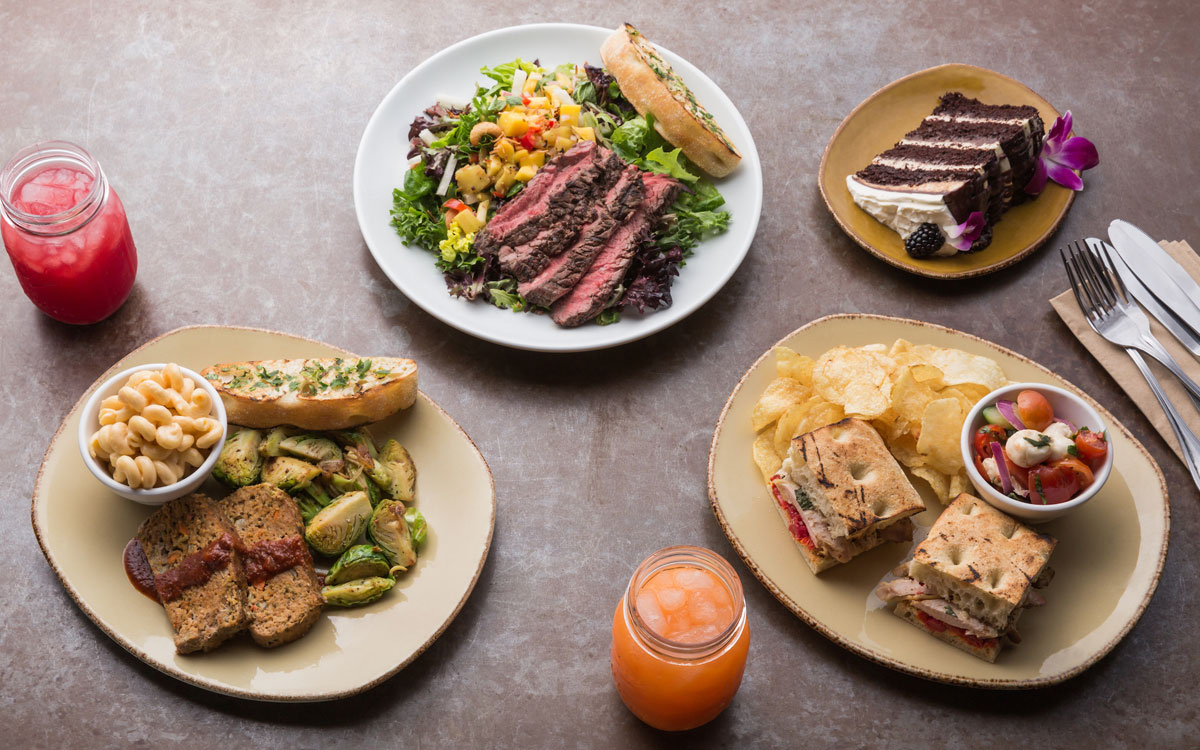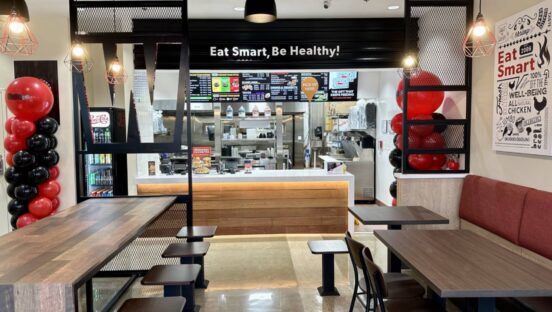After Panera Bread launched its coffee subscription program in early 2020, the concept quickly gained traction with guests. Panera signed up 800,000 customers for the unlimited coffee offering during early months.
More recently, Caribou Coffee followed suit and fast casual Urban Plates jumped onboard. Taco Bell even tested a 30-day taco subscription last fall.
Caribou Coffee launched its program in September, creating a nationwide coffee delivery service for craft-roasted coffee ground to consumer’s specifications. K-Cup Pods, teas, and ready-to-drink canned beverages were also available.
The Midwest-based coffee chain long had an informal subscription offering, but it was historically done via phone. This is the first time the platform was rebooted to be available on the web.
“It really came down to the fact that we know we’re a Midwest concentrated brand, and we know that our guests everywhere love our coffee and love our brand and wanted to be able to experience it in their neck of the woods,” says Erin Newkirk, VP of brand strategy at Caribou Coffee.
With the formalized subscription, consumers from more states could experience Caribou Coffee at home any time, widening Caribou’s scope of market penetration.
“It’s been a huge success,” Newkirk says. “Even more than anything, we’re always listening to our customers, and the fact that we are meeting them where they’re at is really powerful.”
To date, Caribou enjoyed a significant response from customers, evenly distributed across its typical markets and those out of reach of a traditional storefront. Ultimately, it proved a way for people to ensure they always have coffee in their pantry. And Caribou products at that.
It’s a strategy situated at an ideal time, too, Newkirk says. Currently, coffee is having a moment as at-home occasions surge from COVID.
“People nowadays are craving the community and the comfort of coffee,” Newkirk says. “That’s one of the reasons that we’ve really thrived during this time of uncertainty. I think subscription programs make people feel like there’s something that they can rely on and that they can count on. It provides a sense of comfort and community and knowing that they’re going to get the very best in a regular way.”
Urban Plates’ Plate Pass members can purchase all entrées for an $11 (or less) set price with a $10 monthly membership.
The company unveiled Plate Pass in January 2021 to help guests eat healthier and save money by offering them an incredible price for dishes on Urban Plates’ award-winning menu. Since the launch, the company says, Plate Pass has proven to be a hit with members who’ve come to consider Urban Plates as their home kitchen enjoying multiple visits and saving an average of $42 a month with the program.
Subscription programs are flowing at a time in which many restaurants continue to seek out customer loyalty to boost profits. It’s a way to keep prices down via higher guest visit frequency as well. But the greater motive for Urban Plates, the company says, is that mission of bringing healthy food to willing audiences. If Whole Foods was more affordable, Urban Plates founder Saad Nadhir says, more people would shop there. But healthy options are often out of reach.
“We’ll see over time whether it plays out into an economic win for everybody, but right now it looks like it is,” Nadhir says. “It looks like the consumer wins really big, and we don’t get hurt.”
Originally, at the first store in Del Mar, California, in 2011, Urban Plates offered their entrees at $10. No matter the meal, whether a steak or a Cobb salad, everything was priced at that fixed point. That could no longer be the case with surging commodity prices and labor costs mounting up. Prices crept up to $14-15.
But while everyone else is raising prices, Plate Pass enables Urban Plates to be one of few chains dialing them back. As price points lower, Nadhir says, Urban Plates’ addressable market rises. His hope is that Plate Pass empowers Urban Plates to become a larger brand, one that more people will seek out for inexpensive healthy food.
“That one or two times a week, eating out type of food, that craveable, healthier food is something that most people want to do,” Nadhir says. “But it is out of reach for some people because of the price points, and we wanted to bring it within reach of as many people as possible.”
Satisfaction from guest has been reported as extremely high, Nadhir says.
“It’s a very fervent crowd, the believers in the brand really value the accessibility that they now have,” Nadhir says.
Simplicity was another driver of Plate Pass. Typical loyalty programs include a perplexing system of points, and consumers have to keep track of them and apply them. But with Plate Pass, consumers know exactly what they are getting and can unsubscribe at any time.
Plate Pass wasn’t born in a survival mode, either, but instead as a way to boost an already flourishing business. Even without Plate Pass, Urban Plates was comping positive to 2019.
“We didn’t do this out of a ‘this is broken, how do we fix it,’” Nadhir says. “This was a very forward-looking affirmative step to broaden the reach of our brand because we want it to be accessible.”
There’s been an overarching gravitation toward higher-quality, healthier options amid the pandemic, and Nadhir believes that is here to stay. People want to take care of themselves, he says, and Urban Plates can help.
The brands that took the opportunity during COVID to update technology that deals with serving consumers are the ones that will ultimately thrive, Nadhir adds. After all, the way people accessed Urban Plates changed during this time: on premises business that used to be 70 percent transitioned to now be only 40 percent.
Yet what’s really changed is how Urban Plates gets orders in so many different ways: over the phone, in person, online ordering, and third-party delivery. Nadhir predicts restaurants that understand these modes of distribution best and can ensure they are frictionless will have the most success.
As long as companies continue to prove value, Newkirk absolutely believes the subscription program is here to stay in the restaurant industry’s tools of disposal. But connections will continue to set restaurants apart from their competitors, whether it’s at the drive thru, curbside or through online ordering.
“That consistency and that personalization I think is going to continue to be a huge trend in the restaurant business,” Newkirk says. “The companies that are going to succeed are the ones that make their guests and their team feel really special.”





